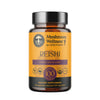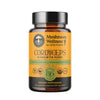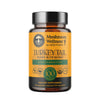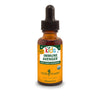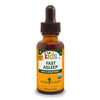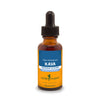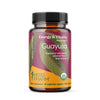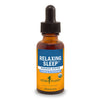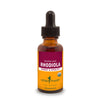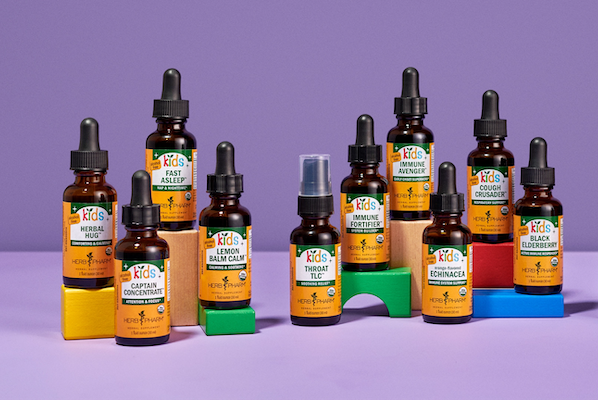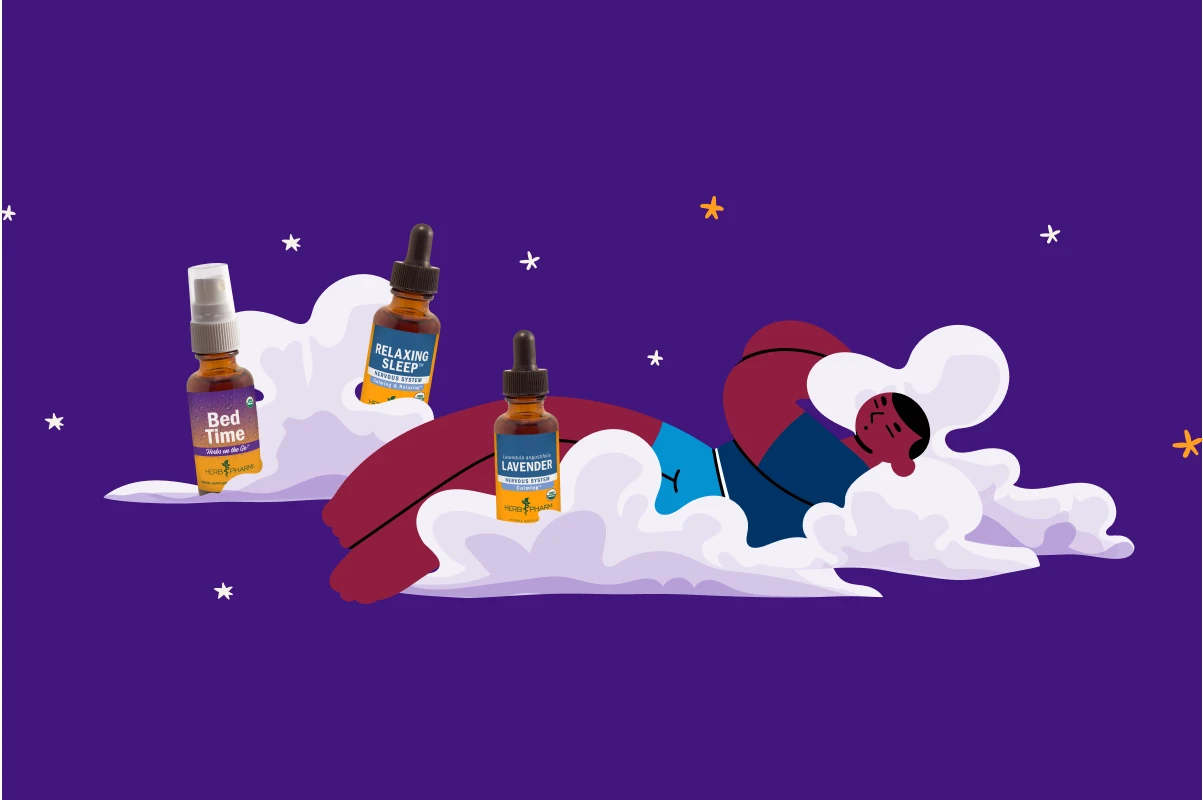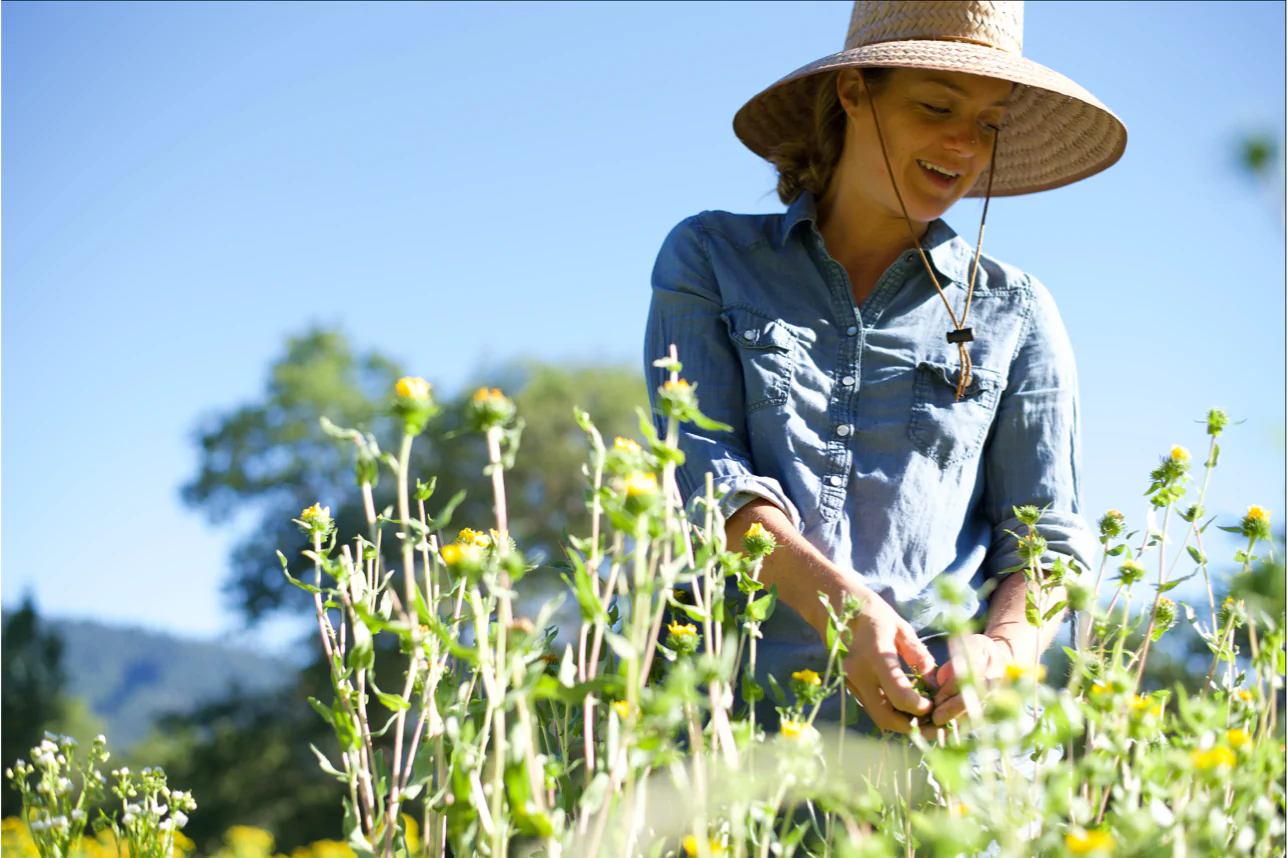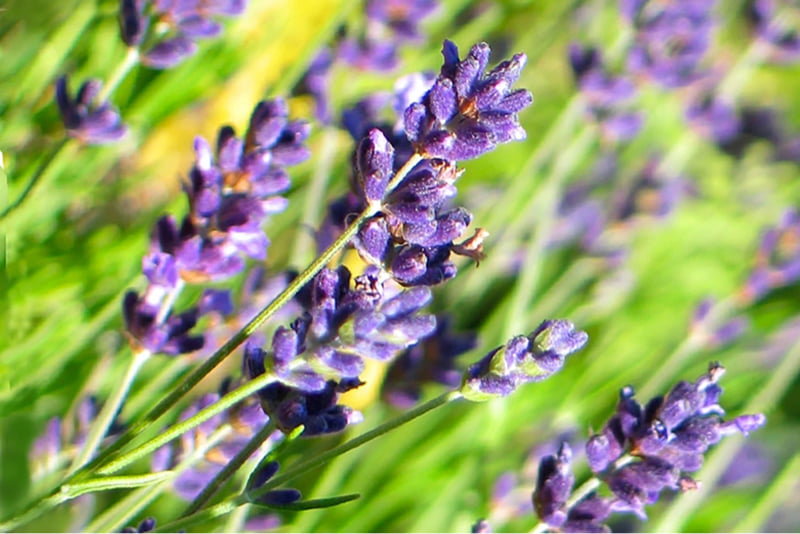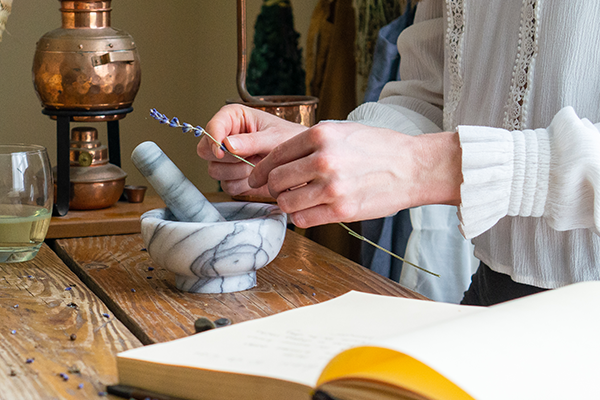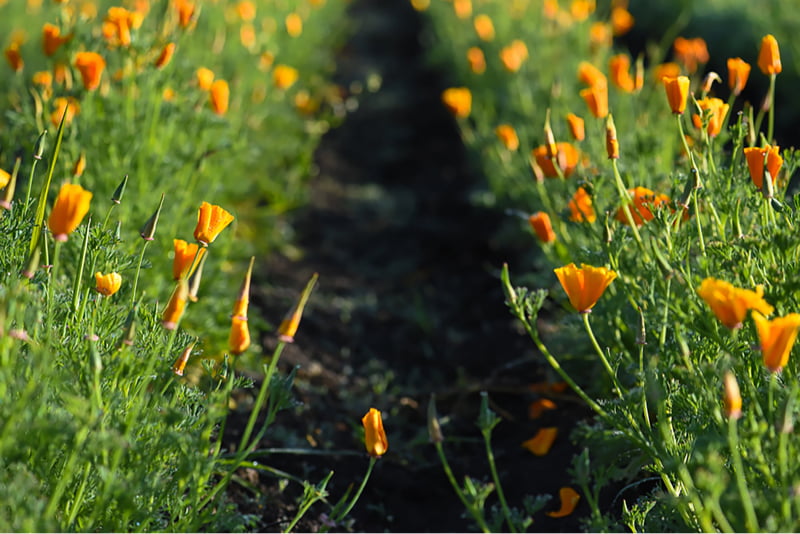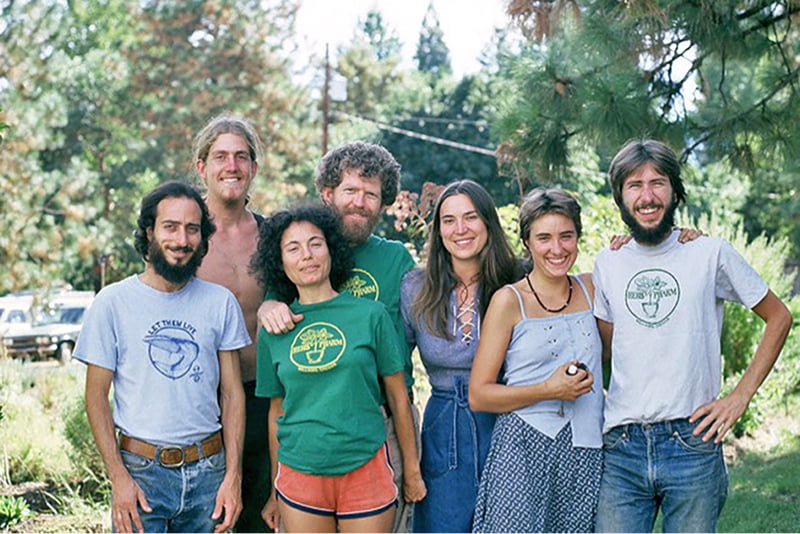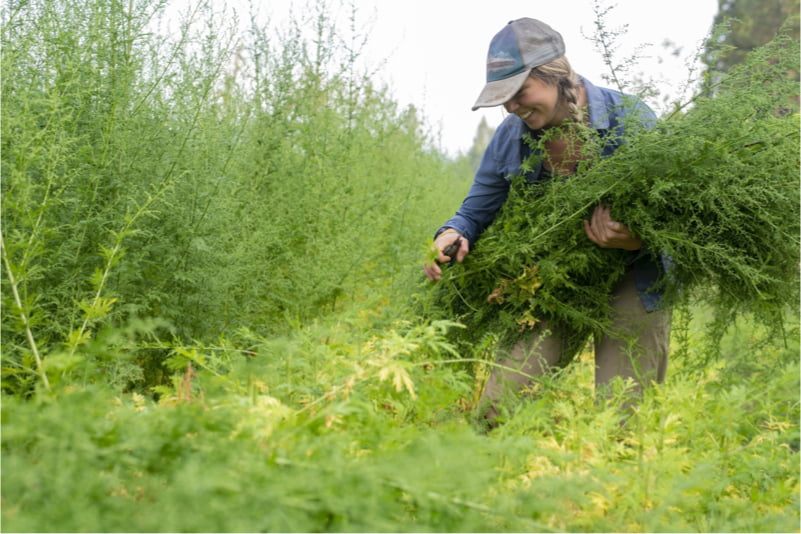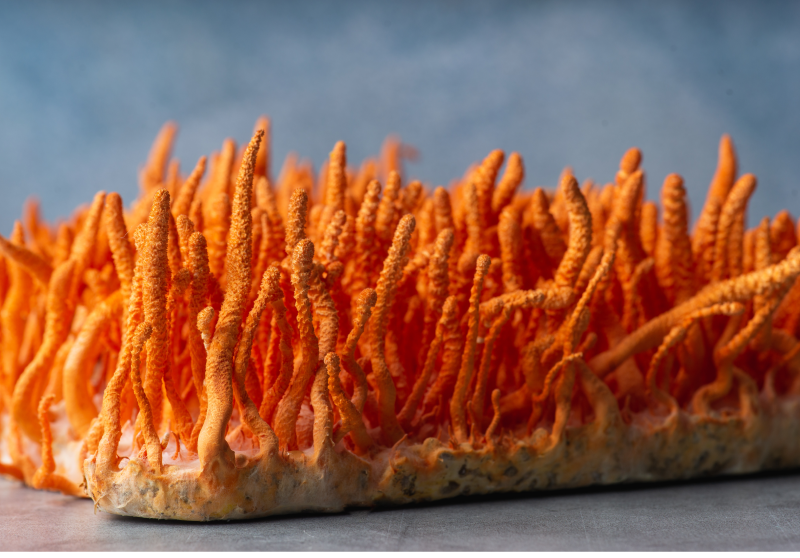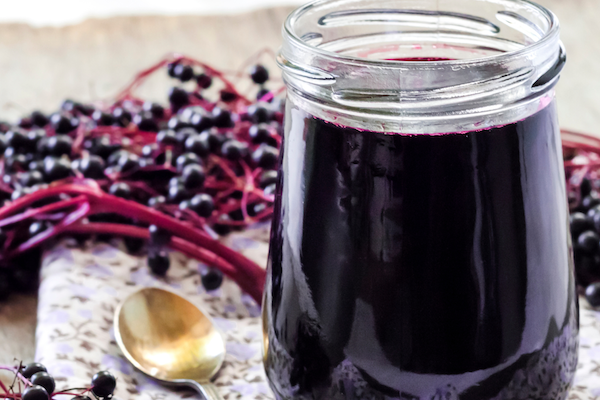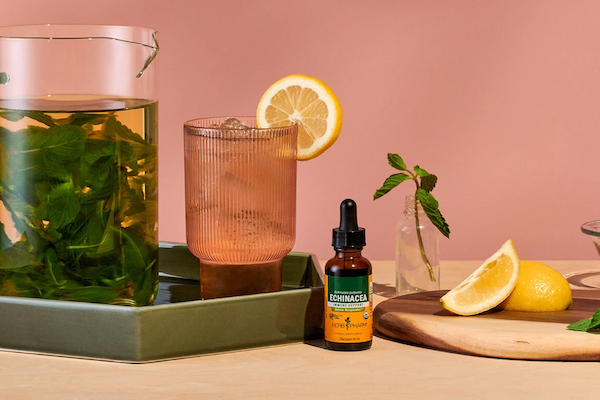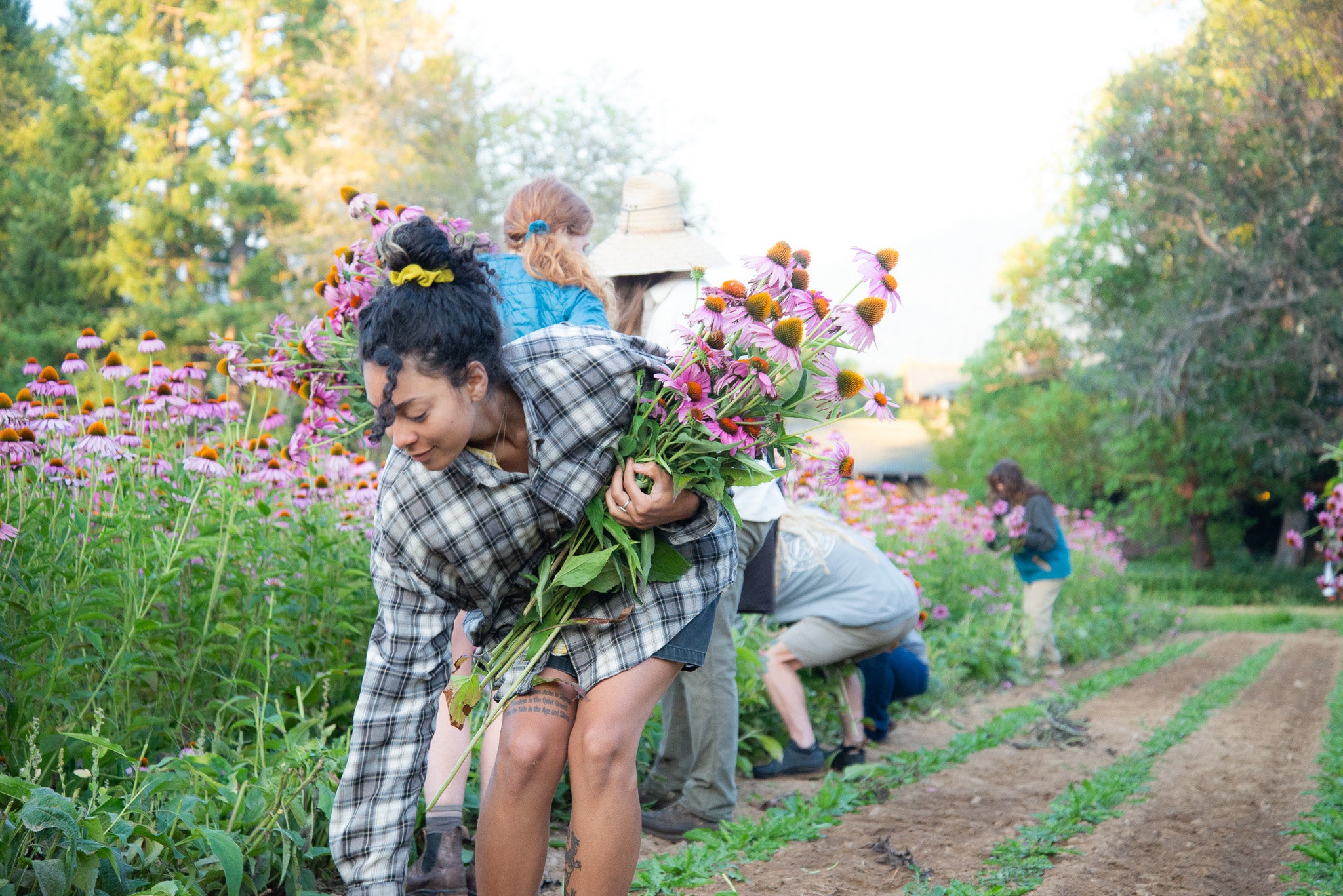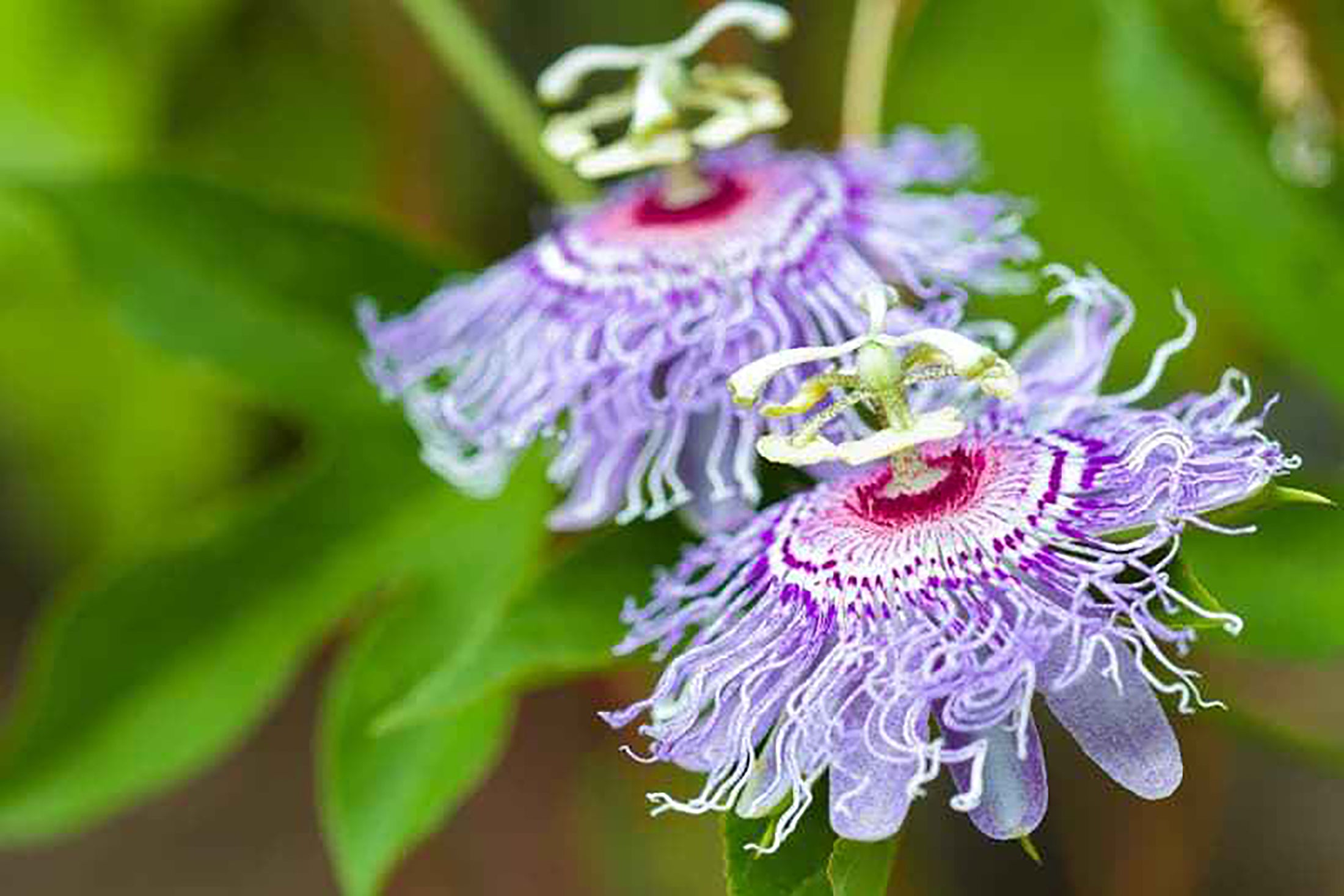When you look at a photo of our fields they look quiet and pristine. Here’s one:

See what we mean?
But when you step into them, you hear the bees. Our farm is an ecosystem. The health of our herbs depends on
the health of the system. 90-95% of plants here are reliant on bees to do the work of reproduction. No bees,
no reproduction.
So naturally, we take an interest in bees and other pollinators like Monarch butterflies too. (But the
Monarchs are another blog post for another day.) Bees share the same basic life cycle as the plants they
support. The population spikes when more food is available. Then it crashes when the weather cools for the
winter. Honeybees are the only bees we have that store food for the winter (their honey). The rest decline
down to just eggs or a queen. As some of you may know, bee populations nationwide are pretty fragile right
now, even in the summer.
So, We Take Special Care To Support The Bees
We keep bee houses, help them breed for pest and disease resistance, even feed them if their honey runs low
in winter months. But the big thing is habitat. Nature thrives on diversity. Our farm grows more than 70
different herbs. Our garden grows even more. This is pretty different from the monoculture factory farms
that blanket big portions of our country. Monocultures have the side-effect of limiting habitat for
pollinators and countless species from the soil up.
Our diversity does the opposite. It creates a Bee-Friendly environment. Actually, we even got Certified
Bee-Friendly. (If you care about this, you can get Certified Bee-Friendly too. Your little home garden can
be an oasis for local bees. Just head here to
find out how.)
We Even Rescue Bees From The Wild
So many of our honeybees started their tiny lives feral. But then life intervened. Local loggers call us when
they’ve felled a tree with a hive. Without a hive, the bees don’t have long to live. A cold night could be
devastating.
So Matt, our head farmer, will drive out into the woods with a spare bee box. When he arrives, he usually
finds the bees clustered around the queen in a big ball, using their body heat to keep her alive. Slowly,
Matt inches his bee box near the branch where they’re clustered. Carefully, Matt picks up the branch and
shakes it over the box, letting the swarming ball of bees fall in.
Then he waits.
The bees have to make a choice. Their broken hive with a familiar branch in unstable, often worsening
weather—or a strange wooden box like nothing they’ve ever seen. Unfortunately, bees aren’t great at quick
decisions. The move can take hours.
But anything worth doing is worth doing right. Those once-feral honeybees are basically the most efficient
pollinators we know. They’re up to three times faster than some of our other bees and butterflies. And
they’re more hearty too as they’re already adjusted to the area and resistant to many of the local pests and
diseases.
Ultimately, we know there are easier ways of pollinating our farm than to raise bees and rescue them from
accidents in the wild. We sell herbs, not honey. Nobody would notice if we took a shortcut. But that’s not
who we are. There’s a right way to do things, so that’s what we do.
So if you’re a bee soaring through the forested hills of Josephine County, Oregon—buzz by our farm. We’ve got
your back. Your tiny tiny back.
